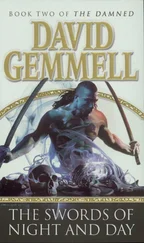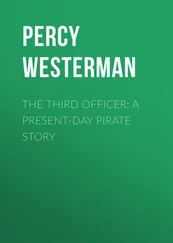David Epperson - The Third Day
Здесь есть возможность читать онлайн «David Epperson - The Third Day» весь текст электронной книги совершенно бесплатно (целиком полную версию без сокращений). В некоторых случаях можно слушать аудио, скачать через торрент в формате fb2 и присутствует краткое содержание. Жанр: Фантастика и фэнтези, на английском языке. Описание произведения, (предисловие) а так же отзывы посетителей доступны на портале библиотеки ЛибКат.
- Название:The Third Day
- Автор:
- Жанр:
- Год:неизвестен
- ISBN:нет данных
- Рейтинг книги:3 / 5. Голосов: 1
-
Избранное:Добавить в избранное
- Отзывы:
-
Ваша оценка:
- 60
- 1
- 2
- 3
- 4
- 5
The Third Day: краткое содержание, описание и аннотация
Предлагаем к чтению аннотацию, описание, краткое содержание или предисловие (зависит от того, что написал сам автор книги «The Third Day»). Если вы не нашли необходимую информацию о книге — напишите в комментариях, мы постараемся отыскать её.
The Third Day — читать онлайн бесплатно полную книгу (весь текст) целиком
Ниже представлен текст книги, разбитый по страницам. Система сохранения места последней прочитанной страницы, позволяет с удобством читать онлайн бесплатно книгу «The Third Day», без необходимости каждый раз заново искать на чём Вы остановились. Поставьте закладку, и сможете в любой момент перейти на страницу, на которой закончили чтение.
Интервал:
Закладка:
Lavon wasn’t sure the centurion believed any of this, but Publius merely stared at him for a few more seconds. He then barked orders for the servant outside to bring us food and water and left without saying another word.
Lavon gave us all a few minutes to settle down. He broke a piece of bread off the large loaf and passed it to Bryson, who had taken a seat to his left.
“I’m as guilty as anyone,” he said as he briefly explained what had just happened, “but we’ll have to all take better care to pretend we don’t know some of the things we do.”
“Parthian spies?” asked Bryson. “Who the hell are the Parthians?”
“Persians,” Lavon replied. “At its height, their empire was probably as large as Rome’s.”
“I’ve never heard of it.”
“Few Americans have, but the Romans and the Parthians fought over this part of the world for several centuries. They don’t care much for each other.”
That much I knew. At the Army War College, we learned about Crassus, a Roman general who had blundered his way into the desert and gotten most of his men killed. As the story went, his reputation as the richest man in Rome had preceded him; the Parthians executed him by pouring molten gold down his throat.
“Why does this matter to us?” asked Bryson.
“The route we would have followed from Norvia would have taken us through Parthian lands. I’m sure the Romans are curious how we managed to get through.”
***
Before he could say anything else, Markowitz called us over to the windows. In the dim light, we could barely make out two priests stacking a pile of wood on the altar. Another man, near the center of the inner courtyard, appeared to be hauling away ashes from the day before.
The sun slowly edged over the horizon, sending luminous rays glistening off the gold trim that bordered the Temple’s roof. Shortly thereafter, more white-clad priests appeared — to assist with the morning sacrifices, we supposed.
Markowitz stared at priests intently; then turned to Lavon.
“Robert, what do we in the modern world really know about the Temple rituals? I mean no disrespect, but whenever you’ve described things to us so far, you keep using terms like ‘guess’ and ‘suppose.’”
Lavon sighed. He had heard the same complaint from modern-day tour groups. Unfortunately, the short answer was “not very much.”
“In forty years,” he said, “everything you see here will be a smoldering ruin. Once the siege finally ended, the Romans systematically leveled much of what was left. Josephus wrote afterward that no one visiting the spot would believe that it had once been inhabited.”
“Surely he exaggerated,” said Bryson.
“Yes, probably; but that was only the starting point. Sixty years after the Temple’s destruction, or roughly a hundred years from now, the emperor will decide to scrape what remained of old Jerusalem and build a new city along Roman lines. That triggered another revolt, leading to another round of complete devastation.”
“OK, I get the point,” said Bryson.
“I’m not sure you do. No city on earth has been destroyed and rebuilt as many times as this one. In the 600s, after the Western Empire collapsed, Jerusalem passed back and forth between the Byzantines and the Persians — sacked, of course, each time. I think you’ve seen enough already to understand what that means.”
We all nodded.
“In 1099, European Crusaders conquered the city. They lost it about eighty years later to Saladin and the Mamluks from Egypt. After that came the Ottoman Turks, the British and finally the modern Israelis.
“We try, Ray, but think about reconstructing your own house after it burned down and a tornado ripped away the slab. Then consider how well someone could do it a hundred years later, with only a letter from their great-grandmother to go on. Archaeology is an inexact science. We do the best we can.”
Markowitz thought quietly for a moment; then his face grew bright.
“That’s why we must go inside,” he said. “We have to see it for ourselves, while we have the opportunity.”
***
I started to argue, but at that moment, we heard a knock on the door. A slave entered and beckoned us to follow.
“Where are we going?” asked Lavon.
“My instructions are to lead you to the baths.”
We glanced at each other, as if to say why not , and then ambled toward the door. As the others stepped outside, I walked back over to the corner to retrieve my bag. I suggested the others do likewise.
“No,” said the servant. “We will provide everything you need.”
I ignored him and hefted my kit into a comfortable position.
“If he doesn’t like it,” I said to Lavon, “tell him to bring it up with Publius.”
Just as I expected, the man backed down. Slaves, after all, did not complain to centurions.
“As you wish,” he said.
The servant led us down the stairs, then across the courtyard toward the opposite side of the fort. We could see about fifty Romans huddled near the north gate, checking equipment and preparing to go out on patrol. A few of the soldiers glanced up, but the rest of the men paid our group no mind.
We entered a stone passageway underneath the northeast battlement and went down two levels before turning into a narrow room about twenty feet long, which was illuminated with two oil lamps.
I counted fifteen U-shaped stone seats lining one of the walls. Behind each seat rested a stick with what appeared to be a sponge fastened to one end.
“Toilets,” said Lavon. “Those sponges are for washing your back side. They change them out after each use, so you don’t have to worry about having a clean one.”
“Wow,” said Bryson.
“Where’s the flush handle?’ joked Markowitz.
“Don’t laugh,” said Lavon. “I’m serious.”
He spoke briefly to the slave; then turned to the others.
“It’s an ingenious system. The aqueduct brings water into a cistern at ground level. We’re two floors below that, and our, um, material drops one level more. Every so often, they open a sluice gate and gravity pushes the stored water through at a high speed, washing the whole mess into the sewer. From there, it flows into the Kidron Ravine, which has been a garbage dump since the time of Solomon.
“Even if they don’t understand bacteria, they seem to have basic sanitation figured out,” said Bryson.
“As far as personal hygiene goes,” said Lavon, “the average soldier in this building probably lived better than the court at Versailles.”
“Where is the women’s restroom?” asked Bergfeld.
Lavon questioned the servant, but the man only stared back blankly. There wasn’t one.
“I know this is an army post,” she said, “but surely women visit from time to time?”
The archaeologist scanned the room again. “This fits with what some of my colleagues have worked out from digs in Britain and Italy. Their theory is that men and women rarely had separate facilities in the Roman world.”
“Oh.”
Lavon spoke to the servant again, who nodded and then gave Sharon an unctuous smile.
“I told him that our customs are different. He will give you a few minutes of privacy, if you’d like.”
“Thank you,” she said, as the rest of us turned toward the door.
A few minutes later, she came out and thanked the servant again. He bowed his head, as if unaccustomed to such niceties, and turned toward a set of steps at the other end of the corridor.
“Now we will go to the baths.”
He led us up one level, toward another corridor that opened into a chamber about the size of a modern tennis court. Two windows in the ceiling, covered with metal grates, provided illumination.
Читать дальшеИнтервал:
Закладка:
Похожие книги на «The Third Day»
Представляем Вашему вниманию похожие книги на «The Third Day» списком для выбора. Мы отобрали схожую по названию и смыслу литературу в надежде предоставить читателям больше вариантов отыскать новые, интересные, ещё непрочитанные произведения.
Обсуждение, отзывы о книге «The Third Day» и просто собственные мнения читателей. Оставьте ваши комментарии, напишите, что Вы думаете о произведении, его смысле или главных героях. Укажите что конкретно понравилось, а что нет, и почему Вы так считаете.












